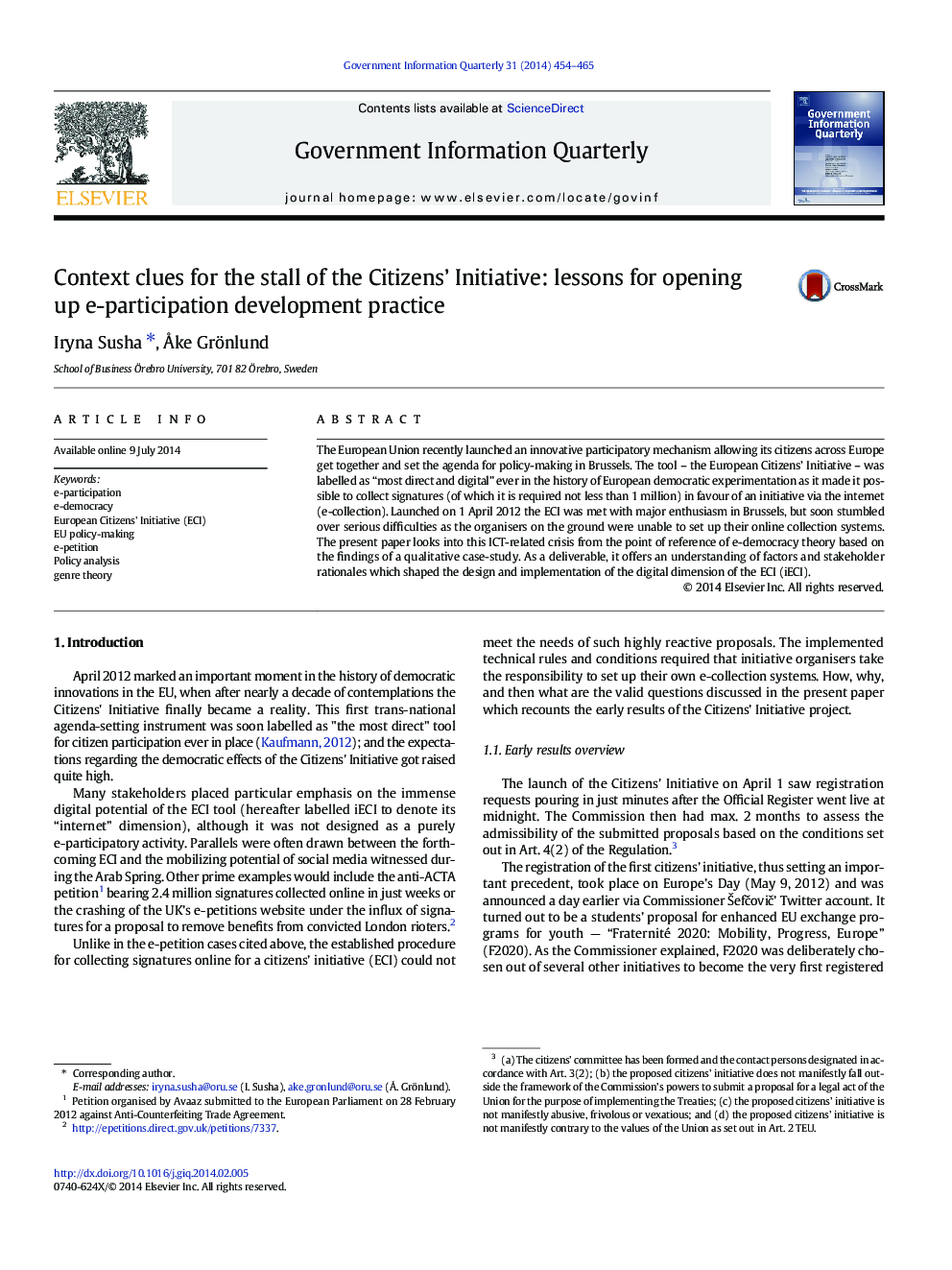| Article ID | Journal | Published Year | Pages | File Type |
|---|---|---|---|---|
| 1024411 | Government Information Quarterly | 2014 | 12 Pages |
•We analyze the development of an e-participation tool for EU-wide agenda-setting.•We focus on internal institutional variables in explaining project hardships at the start.•The failures were largely caused by dissonant stakeholder perceptions of the tool.•The study showcases the analytical value of genre theory for project design in e-participation.
The European Union recently launched an innovative participatory mechanism allowing its citizens across Europe get together and set the agenda for policy-making in Brussels. The tool – the European Citizens’ Initiative – was labelled as “most direct and digital” ever in the history of European democratic experimentation as it made it possible to collect signatures (of which it is required not less than 1 million) in favour of an initiative via the internet (e-collection). Launched on 1 April 2012 the ECI was met with major enthusiasm in Brussels, but soon stumbled over serious difficulties as the organisers on the ground were unable to set up their online collection systems. The present paper looks into this ICT-related crisis from the point of reference of e-democracy theory based on the findings of a qualitative case-study. As a deliverable, it offers an understanding of factors and stakeholder rationales which shaped the design and implementation of the digital dimension of the ECI (iECI).
